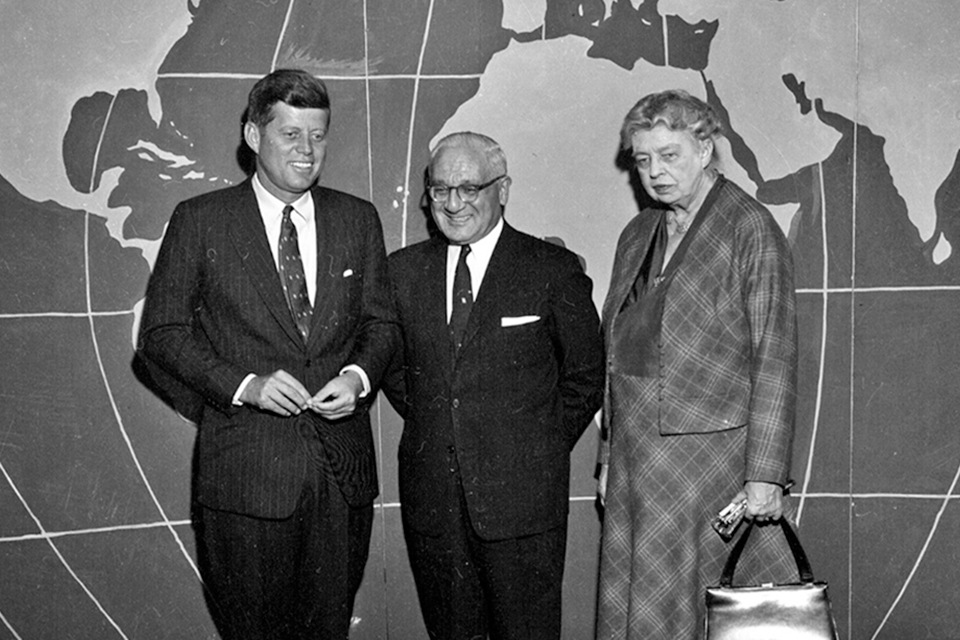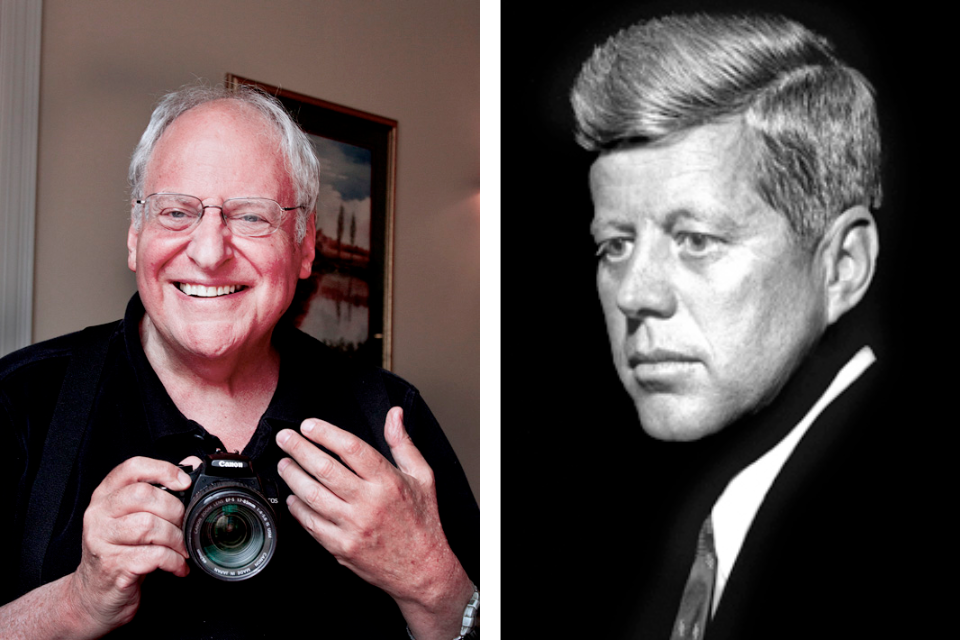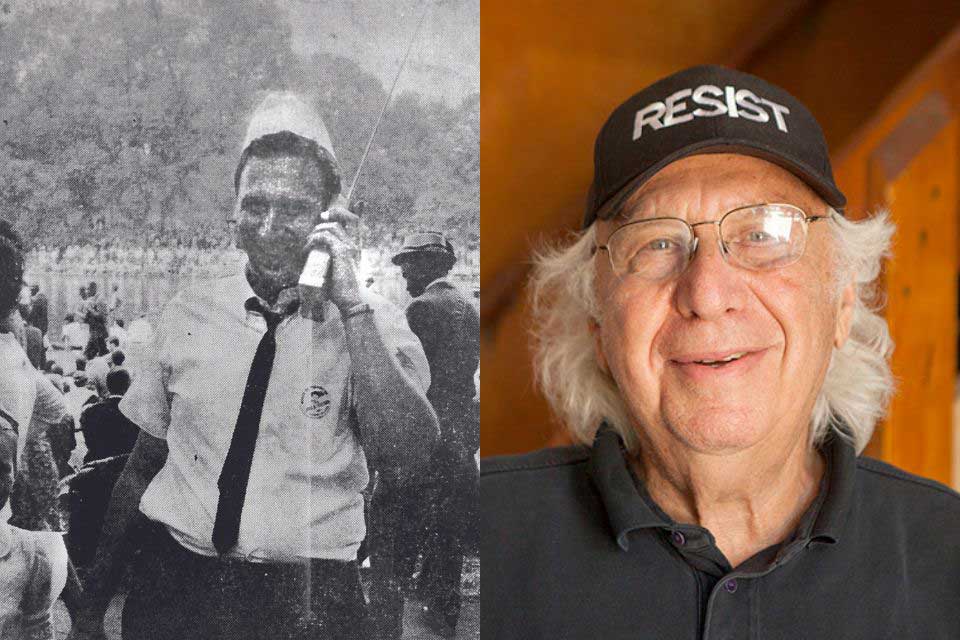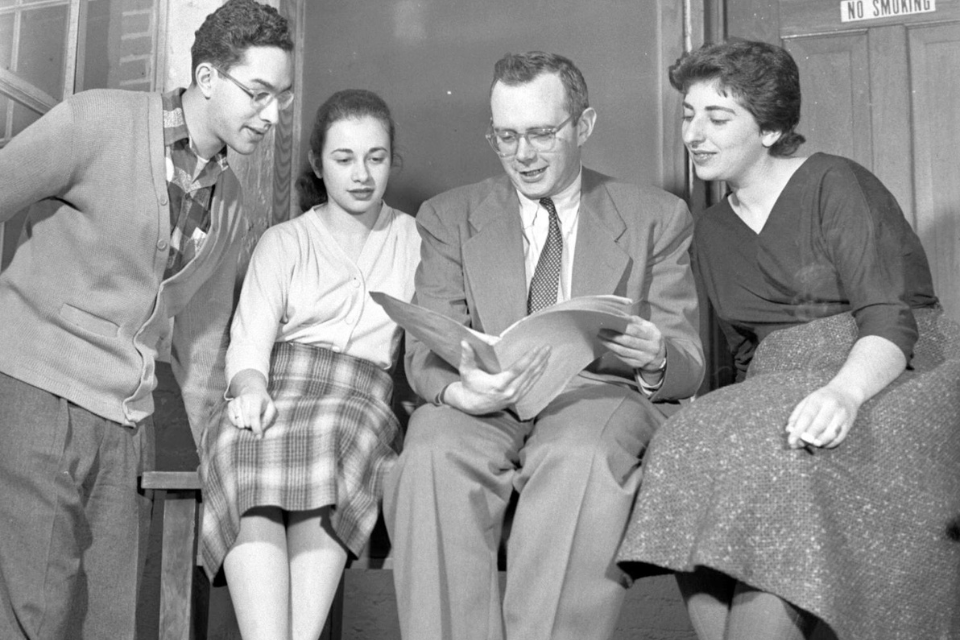Brandeis Alumni, Family and Friends
That Day: An Alum Reflects on Experiencing JFK’s Assassination While a Student
November 22, 2024
Mary Huff Stevenson ’66 was a sophomore at Brandeis when President John F. Kennedy was assassinated on November 22, 1963. Commemmorating the anniversary of his death, she reflects on that experience.

We weren’t wearing jackets that day. The weather was glorious: clear, bright, and unseasonably warm for a late November day in New England. It was our sophomore year and we were the first residents of the newly-built East Quad. We’d had our lunch earlier in the sparkling new dining hall, but now it was mid-afternoon and we’d decided to stop for coffee at the Castle snack bar, needing a caffeine boost before we did our assignment for music class. My two suitemates and I were enrolled in Music 101, a class in music appreciation where we were encouraged to listen closely to masterworks such as Mozart’s Haffner and Jupiter Symphonies. The music was played at scheduled times throughout the week over speakers in the lounge that was conveniently located near the entrance to the Goldfarb Library.
We savored the blue sky and the mild breeze as we walked the short distance from the snack bar to the library. On the way, we saw our classmate coming from the opposite direction. He was a guy who could have been a stand-up comic and always had something funny to say. As he got closer, he yelled to us, “They shot the president!” We kept walking and chastised him for telling a joke that was in such poor taste. It was only when we got to the library lounge that we discovered he was not joking. Our music appreciation assignment was not playing. Instead, the radio was on, and we listened to the reports coming out of Dallas. Like the rest of the nation, we were stunned. It was unfathomable. And on such a beautiful day.
Although I was already 18, I felt like a child who needed comforting. I felt the way I had when I was eight years old and my perfectly healthy father suddenly fell gravely ill and died of an inoperable brain tumor. I was bereft, but in this case, so were my classmates who still had two living parents and who had not suffered such childhood loss. We yearned for the reassurance and security of home. There was a huge exodus from Brandeis on Saturday the 23rd. Normally, we would have been leaving for Thanksgiving vacation a few days later. I was never one to cut classes, but I gave no thought to what, if anything, I would be missing on that Monday, Tuesday, and Wednesday. I was relieved to be back home on Saturday afternoon. I needed the comfort of familiar surroundings and people who loved me.
If I left campus feeling like a child, I returned feeling more like an adult. I’d known since I was eight years old that terrible things could happen to my family and me, but now I knew that terrible things could happen to everyone else, too. I was too young to have lived through the worrisome years of the Second World War, but now, it seemed like I and the rest of my generation viewed the world differently, having experienced the assassination of President John F. Kennedy in ways that were cognitive, emotional, and visceral.
For me, and I think for many in my cohort of college students, the assassination forced us to take off the rose-colored glasses that celebrated the virtues of America and minimized its flaws. The optimism that accompanied Kennedy’s 1961 inaugural address telling us to “Ask not what your country can do for you – ask what you can do for your country” and the creation of the Peace Corps later that year gave way to the harsh realities of the struggle for civil rights and the turmoil of the Vietnam War.
Almost 40 years later, my daughter experienced the September 11, 2001 terrorist attacks on the World Trade Center while a sophomore at New York University. Just like in 1963, it was a bright clear day. And then, as had happened my sophomore year, the world changed. We were stunned. It was unfathomable. And on such a beautiful day. She and I have spoken about these parallel events, the ways in which they shaped our late-teen perceptions of the world, and the ways in which sudden maturity arrived uninvited.
Mary Huff Stevenson ’66 is a retired economics professor. Her recent book, Our Words Were Our Bond: A Mother-Daughter Relationship Preserved in Letters, is based on correspondence with her mother during her Brandeis years.








